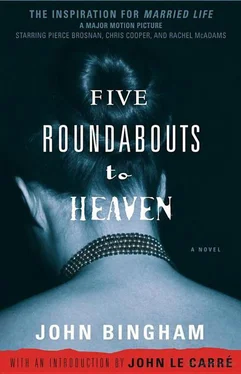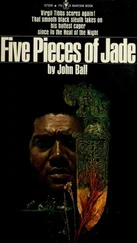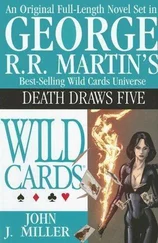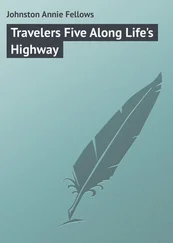John Bingham - Five Roundabouts to Heaven
Здесь есть возможность читать онлайн «John Bingham - Five Roundabouts to Heaven» весь текст электронной книги совершенно бесплатно (целиком полную версию без сокращений). В некоторых случаях можно слушать аудио, скачать через торрент в формате fb2 и присутствует краткое содержание. Жанр: Криминальный детектив, на английском языке. Описание произведения, (предисловие) а так же отзывы посетителей доступны на портале библиотеки ЛибКат.
- Название:Five Roundabouts to Heaven
- Автор:
- Жанр:
- Год:неизвестен
- ISBN:нет данных
- Рейтинг книги:4 / 5. Голосов: 1
-
Избранное:Добавить в избранное
- Отзывы:
-
Ваша оценка:
- 80
- 1
- 2
- 3
- 4
- 5
Five Roundabouts to Heaven: краткое содержание, описание и аннотация
Предлагаем к чтению аннотацию, описание, краткое содержание или предисловие (зависит от того, что написал сам автор книги «Five Roundabouts to Heaven»). Если вы не нашли необходимую информацию о книге — напишите в комментариях, мы постараемся отыскать её.
Five Roundabouts to Heaven — читать онлайн бесплатно полную книгу (весь текст) целиком
Ниже представлен текст книги, разбитый по страницам. Система сохранения места последней прочитанной страницы, позволяет с удобством читать онлайн бесплатно книгу «Five Roundabouts to Heaven», без необходимости каждый раз заново искать на чём Вы остановились. Поставьте закладку, и сможете в любой момент перейти на страницу, на которой закончили чтение.
Интервал:
Закладка:
“Where are you coming from, sir?”
“Near Woking.”
“And your destination?”
“London.”
“That’s all, thank you, sir. Good night.”
But from the other side of the car, the second officer suddenly said:
“Just one moment, sir. You don’t appear to have a roadfund licence, properly displayed on the windscreen.”
“It’s fallen off,” said Bartels.
He pulled open the door of the car and frantically felt for it on the floor by the front passenger seat.
“It’s in a holder which is attached to the windscreen by suction, and it’s an old one, and the rubber has perished, and it falls off now and again.”
He continued to grope in the darkness. “Here it is,” he said at length.
The second officer examined it carefully.
“You know it’s an offence to drive a vehicle without a roadfund licence properly displayed on the windscreen, sir?”
“Yes, but I had it. I had it with me. And it’s in order.”
“It wasn’t displayed, sir.”
“No,” said Bartels. “It wasn’t displayed.” His voice shook a little. How long had they wasted? Five minutes, ten minutes?
“I’ll get it seen to,” added Bartels humbly. “I’ll get it seen to, tomorrow.”
“Better get a new one, sir,” said the second officer. “That’d be the best thing in the long run, sir. Get a new one.”
“I’ll get a new one tomorrow,” said Bartels desperately. “Is that all?”
“That’s all, sir. Good night.”
“Good night,” said Bartels.
He climbed back into the driving seat. The officers walked back to their car. Bartels waited until the police car had started, watched it, as it slid swiftly forward, and saw the tail light grow smaller in the distance.
He switched on his own engine, and drove on. It had begun to snow again, not continuously, but intermittently. Bartels switched on the windscreen wiper, and noted with relief that it was working again.
He drove more slowly for a mile or two, while he sorted things out in his mind. The incident had shaken him. He tried to think whether he had said or done anything he should not have done, apart from showing some impatience.
He didn’t like their questions about where he was coming from, and what was his destination. He had told Beatrice he was going to Colchester. Supposing she had mentioned it to somebody else, and that came out, combined with the fact that he had now been officially noted as being on the road from Woking?
Why had he told her that lie? It was stupid and pointless. He could as well have said his dinner was in Woking.
One after another they cropped up, he thought, the unforeseeable little things which you cannot reasonably cater for. Everything seems simple and straightforward at first, but it isn’t.
Sin is not simple. Virtue is simple but not easy, and sin is easy but not simple. Sin is tortuous and twisted, involving lies, and lies within lies, and the bending and warping of the conscience, and subterfuges and concealments, and the ever-present necessity to be on your guard, to watch your every action, to rein in your tongue, to act normally when you yearn to show emotion; only to discover that in acting, as you thought, in a normal manner, you have in fact acted abnormally.
He was halfway between Cobham and Esher, and saw by the dashboard clock that it was 9.40. He began to calculate.
The Kingston Bypass took thirteen minutes, at night, he knew that one; from the London end of the bypass to his flat took not more than twenty minutes, that totalled thirty-three minutes.
He had to be back by 10.30 at the latest, which meant that he had seventeen minutes to reach Esher, pass through Esher, and reach the bypass which was a couple of minutes’ drive further on.
He had ample time, provided Beatrice adhered to her routine, and at the moment when he came to this conclusion he knew without a shadow of doubt that he would not reach his flat, after all, not by 10.30 or even by 11.30.
Something would stop him.
Something would reach out of the night around him, something which was watching him now, with a laugh in its throat; observing him drop speed from fifty miles an hour to forty-five, and then to forty; smiling to see him peer through the windscreen at the road ahead.
It, or its minion, lurked in every side turning, ready to shoot out at him in splintering collision; sat at the wheel of each oncoming car, drunk and unfit to be driving; laid its hand upon the over-burdened boughs of the snow-covered trees under which he passed, ready to drop a branch in his path.
It wasn’t even snowing now, and he stopped the windscreen wiper, and the road ahead lay clear and white in the moonlight, but Bartels knew that that made no difference to the inevitable end. He dropped speed still further, to thirty-five miles an hour, and slowed down at each side turning; and hugged the side of the road when a lorry rumbled up from behind and passed him and thundered on.
He drove carefully, tense and alert, but he knew it made no difference because he knew now that the something which would reach out for him would not take such obvious forms as he had imagined.
He knew it, because each time he took some precaution he heard it giggle delightedly in his ear, like a sadistic young schoolboy torturing a frog.
He knew it would not operate through an engine defect, or a mechanical defect of any kind; nor through a puncture, or a tyre burst. Nothing so prosaic as that.
He crawled through Esher at twenty miles an hour, and when he had passed through the town, and came to the first traffic roundabout on the way back, and joined the bypass, he felt better.
His nerve returned, and he increased speed.
There was no more giggling in his ear; the schoolboy stood back, the frog made off afresh. There was nothing to fear now, except time.
The bypass stretched ahead, broad, sometimes gently curving, well illuminated in the appropriate places, and properly controlled by traffic lights and roundabouts. There were no side turnings where danger could lurk, and ample room for cars to pass.
When he came to the double carriageway, he increased speed to fifty. He felt ashamed of the time he had wasted through his overcautious driving, but not unhopeful that he would arrive home with a quarter of an hour or more to spare.
Beatrice rarely started going to bed before 10.30 or 10.45; sometimes not till 11.15. He pictured himself going into the flat, greeting her as she sat by the fire having her final cup of weak China tea. Then casually going into the bedroom, and taking the bottle from the bedside.
After that, he would have to throw the altrapeine down the drain in the bathroom, and wash out the bottle and throw it in the dustbin, or put it in his overcoat pocket; it would be of no further importance, anyway.
The one he had bought at lunch time, the one containing the remains of pure stomach powder, he would leave by the bedside. If she was in the bedroom he would announce that he had left the dinner early because he had not been feeling very well, and ask if he could have the remains of her medicine. She would certainly agree. He smiled at how easy it would be.
The frog was getting uppish, now.
The path of sin was not so tortuous after all, it was straightening out nicely, and as to the future, as to Lorna, that, too, could be considered in due course. He passed the second and third roundabouts, thinking of sin, and the Seven Deadly Sins, which are said to be Pride, Covetousness, Lust, Gluttony, Anger, Envy, and Sloth; and he tried to discover which it was that had led him to his present position.
He was not proud; indeed, in some ways he was rather meek. He did not covet Lorna, because covetousness involved desiring that which belonged to somebody else, and Lorna belonged to nobody.
Читать дальшеИнтервал:
Закладка:
Похожие книги на «Five Roundabouts to Heaven»
Представляем Вашему вниманию похожие книги на «Five Roundabouts to Heaven» списком для выбора. Мы отобрали схожую по названию и смыслу литературу в надежде предоставить читателям больше вариантов отыскать новые, интересные, ещё непрочитанные произведения.
Обсуждение, отзывы о книге «Five Roundabouts to Heaven» и просто собственные мнения читателей. Оставьте ваши комментарии, напишите, что Вы думаете о произведении, его смысле или главных героях. Укажите что конкретно понравилось, а что нет, и почему Вы так считаете.












